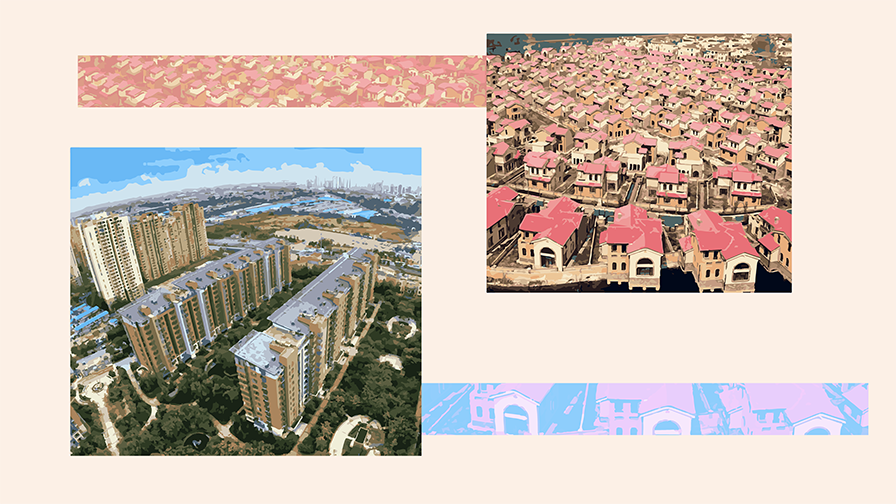This series is great ![]()
In August 2020, amid a mature real estate market, the Chinese government issued the regulation known as the “three red lines”, which provide three key indicators of the financial health of real estate developers. The regulation caps these companies’ ratio of debt to cash and equity and assets, and promotes sustainable growth of the sector. The government called on companies to reorganize their finances by 2023, classifying them as “green” if they meet these healthy-finance criteria and thus allowing them access to new credit.
Evergrande, the second largest real estate developer in China, garnered the most attention. By December 2020, the Evergrande Group’s debt had accumulated to US$300 billion, and its liability-asset ratio was 84.7%, above the 70% established in the three red lines.3
As the company was struggling to pay back its debt, and in order to avoid misuse of the funds, two local governments took control of Evergrande’s revenue, and since August 2021, eight other provinces have requested that Evergrande place pre-sales revenue into custodial accounts as the cash-strapped developer put hundreds of unfinished projects on hold. The Chinese government is taking control of the company’s revenue and resolving the issues before a debt crisis explodes.
The 5% cap on the annual growth rate of rent increases improved the living conditions of all Chinese households and further slowed the otherwise explosive price hikes. The bottom line of the regulation is that, as president Xi Jinping said at the 19th CPC National Congress, “houses are for living, not for speculation.”
Besides controlling price speculation, the Chinese government has promoted a series of policies for the development of social housing in order to facilitate and ensure access to housing for the younger generations and those with lower purchasing power. The Xiamen government, in Fujian province, reduced the market price by 45% of 4,000 apartments. The Henan government bought 1,050 flats from Evergrande, whose construction was interrupted due to its liquidity issues. In general terms, the Chinese government is supplying 6.5 million new low-cost rental housing in 40 major cities, which started in 2021-2025, to ease housing difficulties for 13 million young people; tier-one cities like Beijing and Shanghai will supply a total of 1.87 million units of low-cost rental housing. In 2021 alone, 936,000 units provided housing for 2 million young people in 40 cities.
The nut of the article. Evergrande was leading a speculative real estate bubble primarily concerned with high end construction. Once the cheap money funnel was turned off, they were forced into receivership.
The Chinese state responded by loosening regulations and lowering interest rates (a classic western move) while increasing public investment and expanding low income housing in large urban areas (a nearly unheard of Western move). And now we're seeing recovery to match standard growth models.


